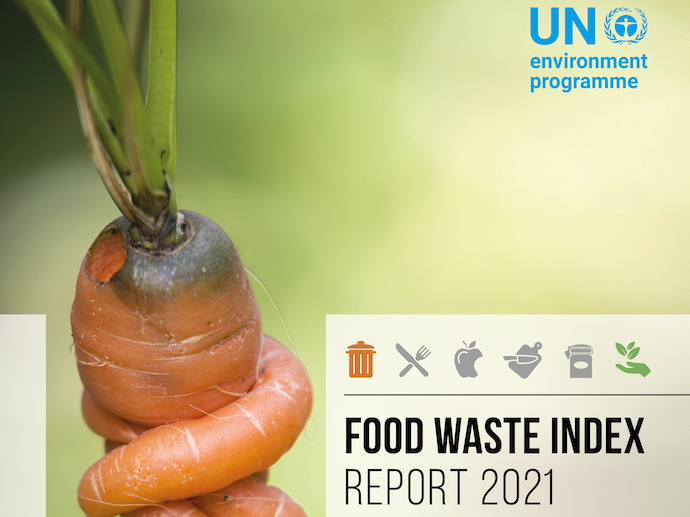On 4 March the United Nations Environment Programme (UNEP) and partner organization WRAP released the Food Waste Index Report 2021. The report presents the most comprehensive food waste data collection, analysis and modelling to date, and offers a methodology for countries to measure food waste.
The 2021 report highlights that food waste is a global problem, no matter the income level of the country, contrary to the widespread belief that only wealthy countries have such a problem. An estimated 931 million tonnes of food, or 17% of total food available to consumers in 2019, went into the waste bins of households, retailers, restaurants and other food services. At the same time 690 million people were affected by hunger in 2019. And this number is expected to rise sharply because of COVID-19.
Food waste has environment, economic and social impacts. “Reducing food waste would cut greenhouse gas emissions, slow the destruction of nature through land conversion and pollution, enhance the availability of food and thus reduce hunger and save money at a time of global recession,” said Inger Andersen, Executive Director of UNEP.
To build on the work of the report, UNEP will launch regional working groups to help countries develop food waste baselines and strategies to reduce food waste towards the achievement of the SDG Target 12.3.
Read the press release of UNEP here.




